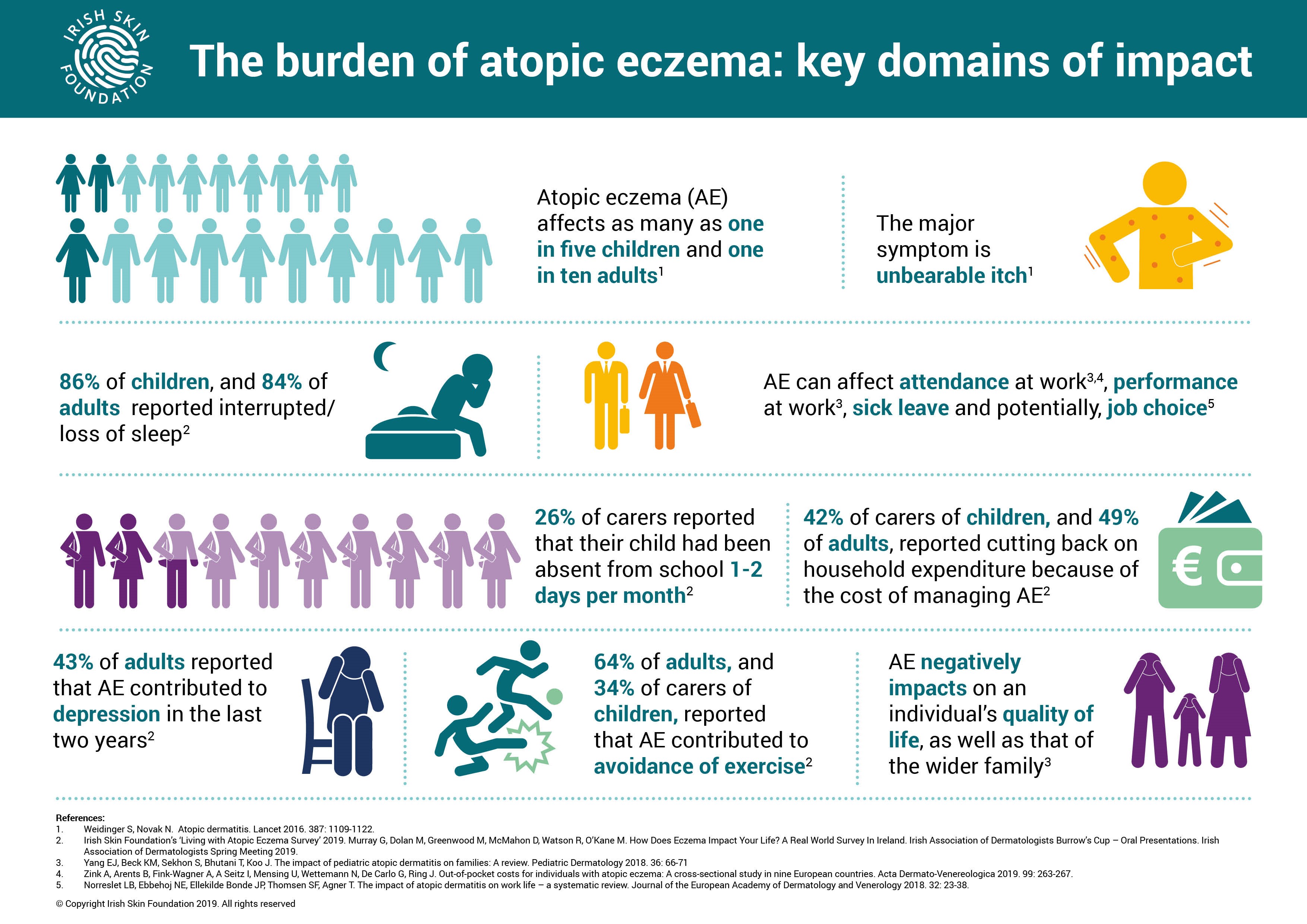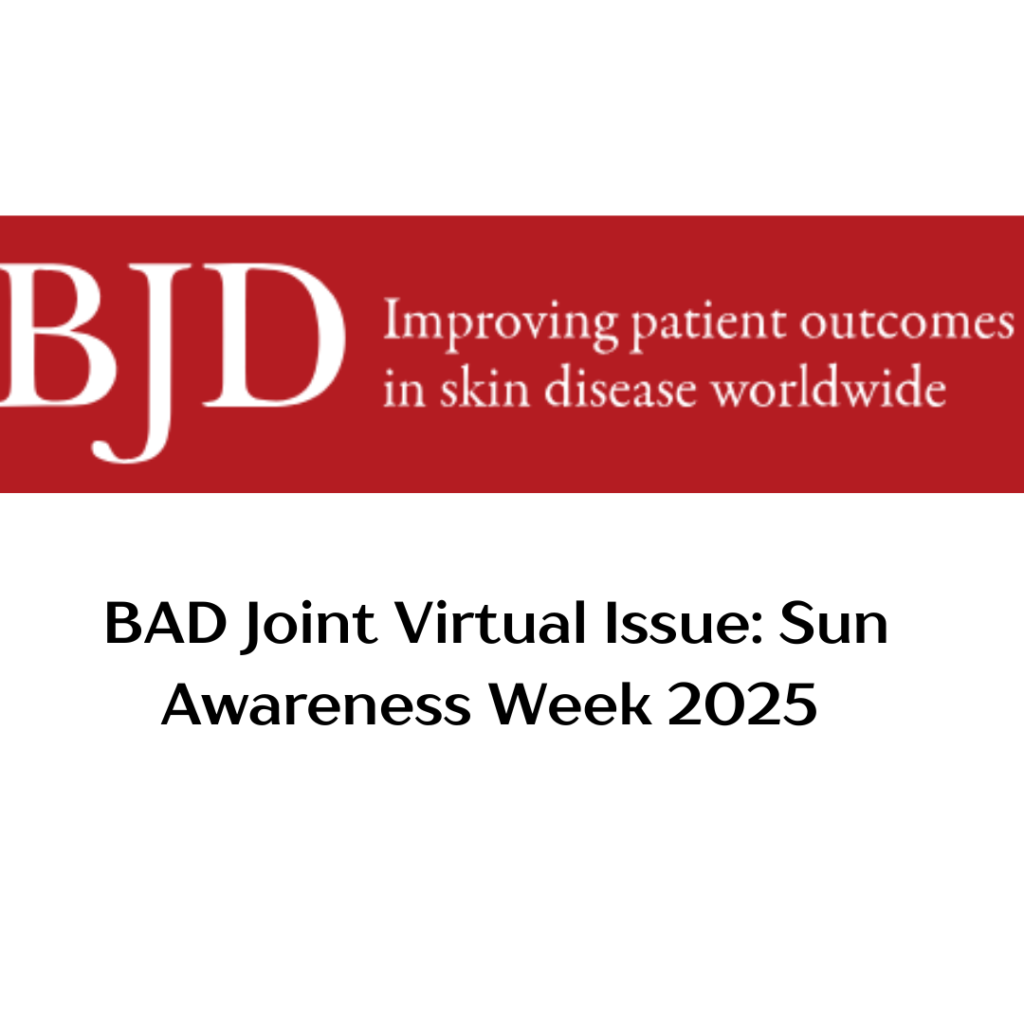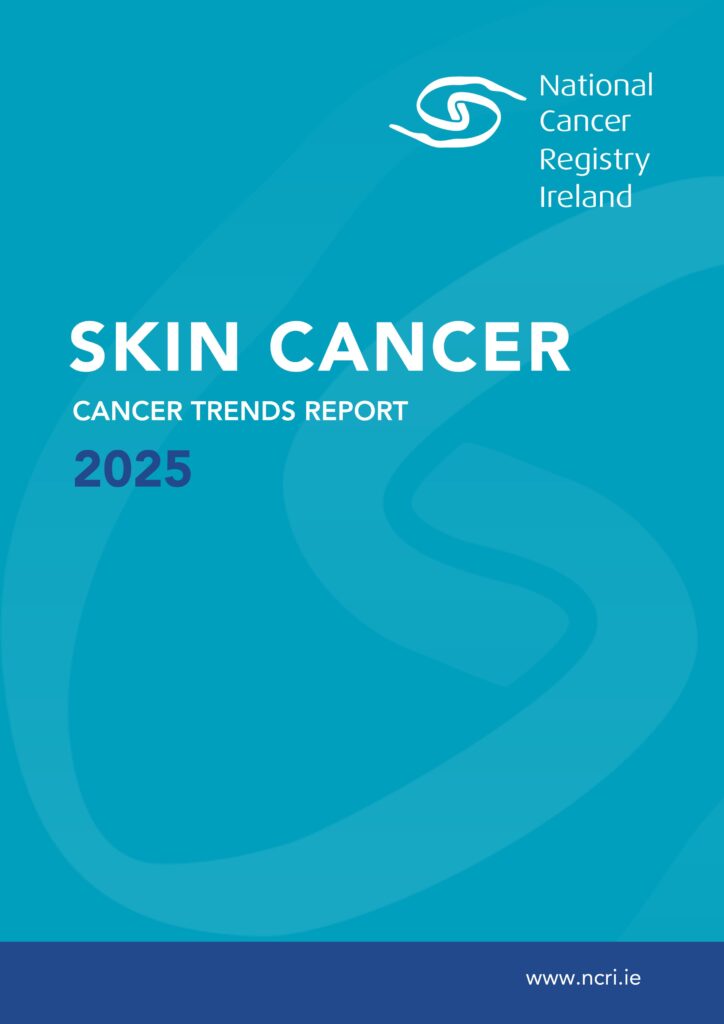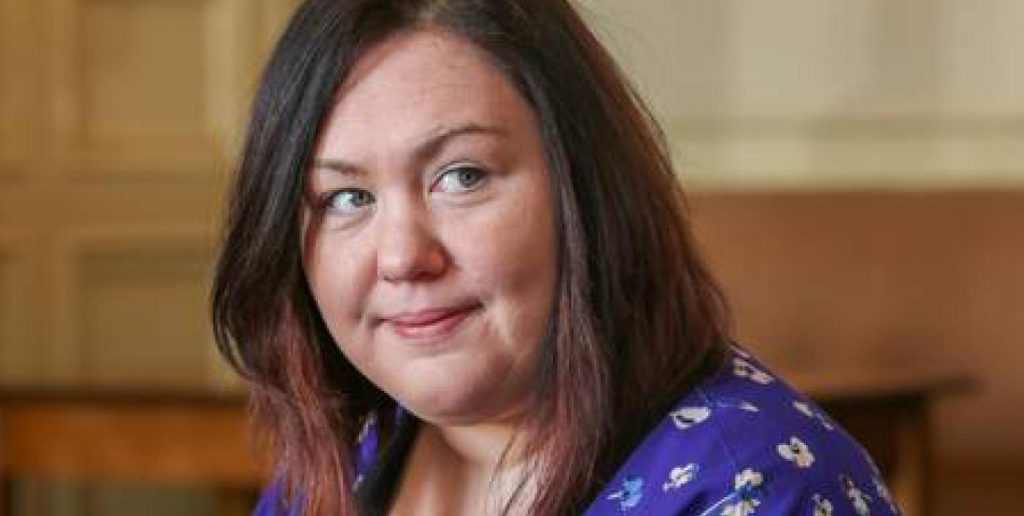Findings from the Irish Skin Foundation’s eczema survey, recently published in Clinical and Experimental Dermatology, highlight the burden experienced by Irish families.
What is eczema?
Atopic dermatitis, or eczema, is one of the most common inflammatory skin diseases in Ireland and the developed world. The condition most frequently develops during childhood and is characterised by areas of skin that become itchy, dry and red, leading to pain and discomfort.
People living with eczema can experience periods where symptoms improve. However, without adequate treatment, repeated flare-ups can occur, which have a huge impact on affected individuals and their families, leading to significant impairment in physical wellbeing and quality of life.
Irish study
Up until now, there have been no studies looking at the burden of eczema in the Irish population, and specifically how it can impact patients and parents of children living with this condition.
To address this, the Irish Skin Foundation (ISF) conducted an online survey between September 2018 and April 2019 to assess how much eczema can affect daily life, including the financial burden.
454 participants took part in the online survey; 52% were parents of children with eczema, while 48% were adult patients who suffer with the condition themselves.
Survey findings: domains of impact
The survey revealed that 85% of adult participants reported that eczema interrupted sleep, 70% reported social anxiety, 65% avoided exercise and sports, 52% avoided sexual intimacy and 52% avoided social activities.

Mental Health burden
International research indicates that eczema can place a serious mental health burden on patients, particularly those living with moderate-to-severe disease, and that the more severe the eczema, the more quality of life is impacted. Of the Adult participants in this Irish survey, 43% reported that eczema contributed to depression.
Impact of childhood eczema
Similarly, 87% of respondents in the parental group reported their child had interrupted sleep, 39% reported social anxiety, 20% avoiding social activities, 34% regularly avoided exercise, as a consequence of their eczema. Notably, 26% of children also missed 1-2 days of school per month.
International context
It is interesting to consider these findings in the context of international research, which has indicated that the health-related quality of life in children with eczema is comparable to that of other chronic childhood diseases such as diabetes or asthma. If considering just one of these domains, e.g. sleep, it is known that sufficient sleep is crucial for health and well-being; both acute and chronic sleep disruption have been associated with a range of ‘cognitive, mood and behavioural impairments’, as well as poor performance in school.
Financial burden
The financial burden and impact of eczema on Irish patients was also concerning. Over half (52%), reported that they cannot always afford treatments for their eczema, and that they have to cut back on their treatment as a result, with 42% of parents reporting that they needed to cut back on household spending in order to be able to afford their child’s treatments.
The results from the survey suggest that one quarter (25%) of those surveyed spend up to €2,300 annually on over-the-counter treatments, prescription treatments, alternative treatments and doctor’s fees for their eczema. This figure is much higher than it is in other European countries. Studies in France show an average cost of €462 a year, and studies is Spain show an average cost of €1500. One study, looking at 9 European counties (not including Ireland), estimated the average yearly cost is €927.
Supporting patients
Eczema is often considered as a disease of childhood, but it is important to remember that eczema can persist, or indeed begin in adulthood, and can be as distressing. Understanding a patient’s mental burden of anxiety, depressive symptoms and frustrations is just as important to doctors and nurses managing patients with eczema, as it is treating their skin.
This survey has shed light on how much eczema impacts the daily lives of patients and the burden experienced by Irish families. This is very important from an advocacy and policy perspective, to better understand the day-to-day challenges and to strive to support those affected.
- Related: Atopic Eczema – Why Scratching Can Make You So Itchy!
- Related: Top Tips for Avoiding Potential Atopic Eczema Triggers
- Related: Emollient Therapy: Your Video Guide to Ointments, Creams & Lotions for Skin Conditions
First author of this study was Dr Gregg Murray, Dermatology registrar in Tallaght University Hospital.
Reference
Murray G, O’Kane M, Watson R, Tobin AM. Psychosocial burden and out-of-pocket costs in patients with atopic dermatitis in Ireland. Clinical and Experimental Dermatology. August 2020. Available at: https://doi.org/10.1111/ced.14422.
If you need guidance or support about managing a skin disorder, contact the ISF Helpline for free assistance and information.












